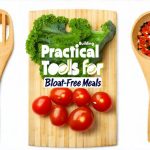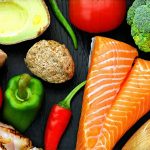Bloating is something most people experience at some point – that uncomfortable feeling of fullness, tightness, and even visible abdominal swelling. It can be caused by a multitude of factors, from diet and digestion to hormonal changes and stress. While occasional bloating is usually harmless, chronic or severe bloating can significantly impact quality of life. Fortunately, dietary adjustments can often make a huge difference in reducing these uncomfortable symptoms. Understanding why we bloat is the first step toward finding relief, and food choices play a critical role. This article will explore some of the best foods to incorporate into your diet to minimize bloating and promote healthy digestion.
Many factors contribute to bloating including eating too quickly, consuming gas-producing foods, or having sensitivities to certain ingredients. Stress and dehydration can also play a significant role. Often, it’s not about eliminating entire food groups but rather making informed choices about what and how we eat. A thoughtful approach to diet, prioritizing easily digestible options and focusing on gut health, can be incredibly effective in managing bloating symptoms.
Foods That Combat Bloating
The goal when dealing with bloating is to choose foods that are gentle on the digestive system and don’t promote gas production. Many fruits, vegetables, and lean proteins fit this bill. Fiber, while generally beneficial, can sometimes exacerbate bloating in sensitive individuals, so finding the right balance is key. Foods rich in potassium – like bananas and sweet potatoes – can help regulate fluid balance, reducing water retention that contributes to a bloated feeling. Probiotic-rich foods are also incredibly helpful as they support a healthy gut microbiome which aids digestion.
Incorporating anti-inflammatory foods into your diet can further reduce bloating by calming the digestive tract. Think about including things like ginger and turmeric in your meals or using them to make soothing teas. Staying hydrated is paramount; water helps move food through the digestive system efficiently and prevents constipation, a common cause of bloating. Remember that everyone reacts differently to foods, so paying attention to your body’s signals is crucial.
Hydration & Gut Health: The Core Principles
Hydration isn’t just about drinking enough water; it’s also about choosing hydrating foods. Cucumber, watermelon, and celery are all excellent options as they contain high water content. Herbal teas like peppermint and chamomile can also contribute to hydration while simultaneously soothing the digestive system. Peppermint tea is known to relax intestinal muscles, which can help relieve gas and bloating, whereas chamomile has anti-inflammatory properties that calm the gut.
A healthy gut microbiome is essential for efficient digestion and reduced bloating. This is where probiotics come into play. Probiotic-rich foods like yogurt (with live and active cultures), kefir, sauerkraut, kimchi, and kombucha introduce beneficial bacteria to your gut, improving digestion and reducing gas production. Prebiotics, found in foods like garlic, onions, asparagus, and bananas, feed these beneficial bacteria, further enhancing their effectiveness.
Foods to Focus On: Specific Examples
Let’s get more specific about what to add to your grocery list. Ginger is a fantastic anti-inflammatory agent that can reduce nausea and bloating. Add it to stir-fries, smoothies, or brew ginger tea. Similarly, turmeric contains curcumin, a powerful compound with anti-inflammatory properties. Sprinkle it on roasted vegetables or use it in curries. Leafy green vegetables like spinach and kale are nutrient-dense and generally easy to digest; just be mindful of portion sizes if you’re sensitive to fiber.
Fruits such as blueberries and strawberries are low in FODMAPs (Fermentable Oligosaccharides, Disaccharides, Monosaccharides And Polyols) – a group of carbohydrates that can cause bloating in some individuals – making them good choices for those with sensitivities. Pineapple contains bromelain, an enzyme that aids digestion, specifically protein breakdown, which can reduce bloating after meals. Lean proteins like chicken and fish are also easier to digest than fatty meats.
Minimizing FODMAPs & Food Sensitivities
FODMAPs are present in many everyday foods, and identifying your personal triggers can be incredibly helpful. Common high-FODMAP foods include apples, pears, onions, garlic, wheat, and dairy products. An elimination diet guided by a registered dietitian can help you pinpoint which FODMAPs cause bloating for you. This isn’t about eliminating these foods forever, but rather understanding your tolerance levels and adjusting your intake accordingly.
Food sensitivities are different from allergies; they don’t involve an immune response but can still cause digestive discomfort. Common sensitivities include gluten, lactose, and soy. If you suspect a food sensitivity, try removing it from your diet for a few weeks to see if your symptoms improve. Again, consulting with a registered dietitian is recommended to ensure you’re getting adequate nutrition during an elimination phase.
Final Thoughts on Reducing Bloating
Ultimately, managing bloating is about finding what works best for you. There isn’t a one-size-fits-all solution. Start by incorporating more of the foods mentioned above into your diet, paying attention to how your body responds. Stay hydrated, prioritize gut health with probiotics and prebiotics, and be mindful of potential FODMAPs or food sensitivities. Small changes can make a big difference in reducing discomfort and improving overall well-being.


















